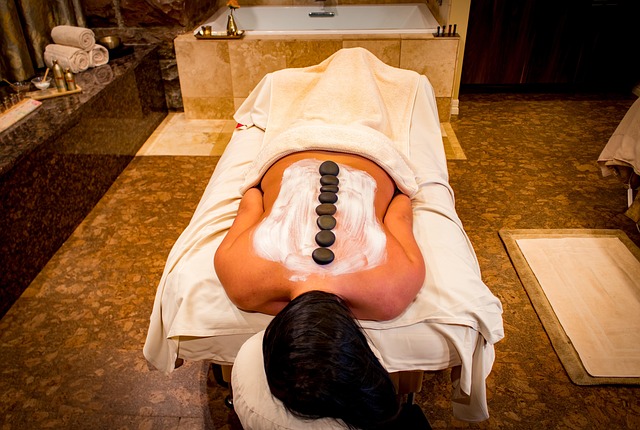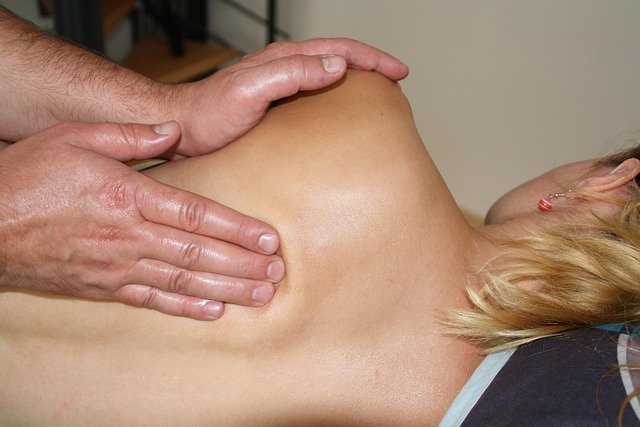Revive Your Marriage: Live, Online Therapy for Lasting Love & Savings

Tired of the same old marital challenges? Best Marriage Rescue offers a revolutionary online marriag…….
Marriage therapy, also known as couple therapy or marital counseling, is a specialized form of psychotherapy designed to help married individuals or couples improve their relationships and address various challenges they may face over time. This therapeutic approach recognizes that marriage is a complex and dynamic process, requiring guidance and support to navigate the unique ups and downs that every long-term partnership encounters. In this article, we will embark on an in-depth exploration of marriage therapy, its impact, and its role in fostering healthier and more fulfilling marriages worldwide. By delving into various aspects, from its historical roots to technological innovations, we aim to provide a comprehensive understanding of the field and its significance in modern society.
Marriage therapy is a process where trained mental health professionals assist couples in identifying and resolving conflicts, improving communication, rebuilding trust, and enhancing overall relationship satisfaction. It is a collaborative effort that encourages both partners to actively participate in the healing and growth process. The primary goal is not just to resolve immediate problems but also to empower couples with the skills and insights needed for long-term relationship maintenance.
The roots of marriage therapy can be traced back to the early 20th century when psychoanalytic theories began to influence therapeutic practices. Sigmund Freud’s ideas on the importance of unconscious motivations in human behavior laid a foundation for understanding marital issues from deeper psychological perspectives. Over time, various schools of thought have contributed to the development of marriage therapy, including behavioral, cognitive-behavioral, and humanistic approaches.
In the 1950s and 1960s, the field experienced significant growth as the concept of marriage counseling gained popularity in the United States. This period saw the emergence of specialized centers and programs dedicated to helping couples overcome problems such as infidelity, communication barriers, and premarital issues. The evolution continued with the integration of new research findings and therapeutic techniques, ensuring that marriage therapy remains evidence-based and effective.
Marriage therapy typically involves a range of evidence-based techniques tailored to address specific couple dynamics:
Communication Enhancement: Therapists teach couples effective communication skills, including active listening, non-violent communication, and conflict resolution strategies.
Emotional Connection: Encouraging emotional intimacy and understanding is vital. Therapists help partners express their feelings, empathize with each other, and rebuild a deep connection.
Conflict Resolution: Couples learn constructive ways to manage and resolve disagreements, ensuring that conflicts are addressed without damaging the relationship.
Identifying Underlying Issues: Therapists assist in uncovering the root causes of problems, often delving into past experiences, attachment styles, and unmet needs.
Setting Realistic Expectations: This involves discussing and aligning expectations regarding roles, responsibilities, and future goals within the marriage.
Behavioral Change Strategies: Techniques such as behavior activation, goal-setting, and positive reinforcement are used to encourage partners to adopt healthier behaviors.
Marriage therapy has gained international recognition, with varying levels of integration into healthcare systems worldwide. Here’s a global overview:
| Region | Integration and Availability | Cultural Influences | Key Trends |
|---|---|---|---|
| North America | Highly integrated; many insurance plans cover marital counseling. | Emphasis on individualism and direct communication. | Growing interest in integrative approaches combining traditional therapy with mindfulness and technology. |
| Europe | Widely available, with diverse cultural practices. | Varies by country; some countries have strong psychoanalytic traditions. | Increasing adoption of digital therapy platforms, especially post-pandemic. |
| Asia | Mixed availability; some cultures prefer community-based support. | Collectivistic cultures often emphasize family and community involvement. | Rising interest in culturally sensitive approaches due to increasing cultural diversity. |
| Middle East | Growing awareness, but still not widely mainstream. | Strong religious influences shape views on marriage and therapy. | Increasing accessibility through online platforms and mobile apps. |
| Latin America | Varied access, with urban areas offering more options. | Collectivistic tendencies and strong family bonds. | Community-based programs focused on education and support. |
The global marriage therapy market is a significant component of the broader mental health industry, with a growing demand for services.
Marriage therapy contributes to economic well-being by:
Technology has revolutionized marriage therapy, making services more accessible, flexible, and tailored to individual needs.
The legal frameworks surrounding marriage therapy vary widely across jurisdictions, shaping its practice and accessibility.
Despite its benefits, marriage therapy faces several challenges and criticisms that require thoughtful consideration and strategic solutions.
Challenge: A married couple in their late 30s sought therapy after the husband’s admission of infidelity. They struggled to rebuild trust and reconnect emotionally.
Approach: The therapist used a combination of communication enhancement techniques, including empathy exercises and reframing strategies, to help the couple process their emotions. Cognitive-behavioral techniques were employed to challenge unhelpful thoughts and beliefs about each other.
Outcome: After several months of consistent effort, the couple reported significant improvements in their relationship. They developed new ways to communicate, regained trust, and found a renewed sense of intimacy. The husband committed to ongoing therapy to address any future challenges that may arise.
Scenario: A diverse couple, one from a Western country and the other from an Asian culture, sought help for communication issues stemming from their differing cultural backgrounds.
Strategy: The therapist created a culturally sensitive environment, incorporating elements of both cultures into the therapeutic process. They utilized cultural awareness training to enhance understanding between the partners.
Result: Through this tailored approach, the couple gained deeper insights into each other’s perspectives and learned to appreciate their cultural differences as strengths. Their communication improved, leading to a stronger bond and better conflict resolution skills.
Problem: A married couple struggled with substance abuse issues that had negatively impacted their relationship. The husband sought therapy while his wife was hesitant, worried about the potential impact on their family.
Solution: The therapist focused on individual counseling for both partners initially, helping them understand and address their personal struggles. Gradually, they incorporated couples sessions to rebuild a safe and supportive environment for open communication.
Success: With dedicated effort, the couple successfully overcame their addictions, rebuilt trust, and strengthened their relationship. They became advocates for marriage therapy within their community, sharing their story to encourage others facing similar challenges.
The field of marriage therapy is poised for exciting developments as technological advancements, cultural shifts, and evolving societal needs continue to shape its trajectory.
Marriage therapy has evolved from its psychoanalytic roots to become a comprehensive and effective approach to fostering healthier marriages worldwide. Its global impact is evident in the diverse range of cultural practices and technological innovations that have emerged. By addressing challenges, embracing new trends, and continuing to provide accessible and evidence-based services, marriage therapy plays a vital role in supporting individuals, couples, and families.
As society continues to evolve, so too will the needs of marriages and relationships. Marriage therapy must remain agile, adaptable, and responsive to these changes, ensuring that it remains a valuable resource for those seeking to strengthen their bonds and build a brighter future together.
Q: Is marriage therapy only for couples facing serious problems?
A: No, marriage therapy is not limited to crisis situations. It can be beneficial for any couple looking to improve communication, enhance intimacy, or simply maintain a healthy relationship over time. Many couples seek guidance to navigate life transitions or prevent issues from escalating.
Q: How do I know if my partner is ready for therapy?
A: This is a personal decision that requires open and honest communication between partners. Look for signs of willingness to listen, learn, and change. If one partner expresses interest, it’s a good starting point, but both should ideally be committed to the process for meaningful progress.
Q: Can online therapy be as effective as in-person sessions?
A: Yes, research supports that online therapy can be highly effective. Video conferencing and secure messaging platforms enable couples to engage meaningfully with therapists, and many find that remote sessions offer added convenience and comfort.
Q: What if we live far from a therapist? Are there options for us?
A: Telehealth is an excellent solution for couples facing geographical barriers. Many therapists now offer online sessions, allowing you to access therapy from the comfort of your home. Additionally, some regions have mobile therapy services or community-based programs that can provide support closer to home.
Q: How much does marriage therapy cost?
A: Costs vary widely depending on your location, the therapist’s experience, and the type of service. Some therapists offer sliding scale fees based on income, while insurance coverage can significantly reduce expenses. It’s best to inquire with local therapists or check with your insurance provider for specific information.

Tired of the same old marital challenges? Best Marriage Rescue offers a revolutionary online marriag…….

Struggling with distance in your relationship? Save Your Marriage offers Remote Therapy, a game-chan…….

Tired of letting busy schedules or financial constraints keep you from the emotional support you nee…….

Are you ready to reclaim your happiness and strengthen your bond? Our expert marriage therapy progra…….

Revive your strained relationship without breaking the bank with marriage therapy that comes straigh…….

Revolutionize your marriage from the comfort of home with our cutting-edge virtual marriage therapy……..

Tired of feeling distant from your partner? Revitalize Your Bond offers specialized marriage therapy…….

Revitalize your marriage from the comfort of home with Remote Love Therapy, a game-changer for coupl…….

Struggling to reconnect with your partner? Investment in our online marriage therapy offers a proven…….